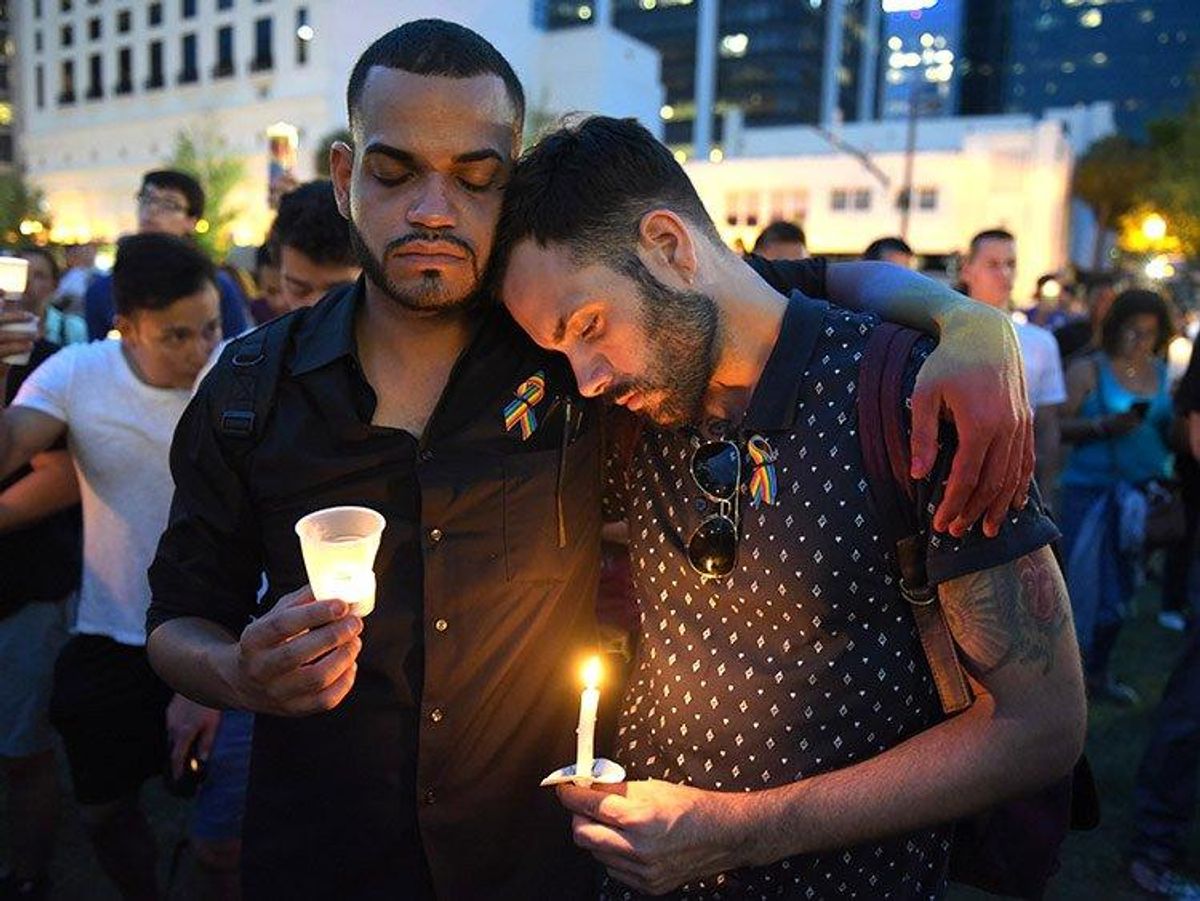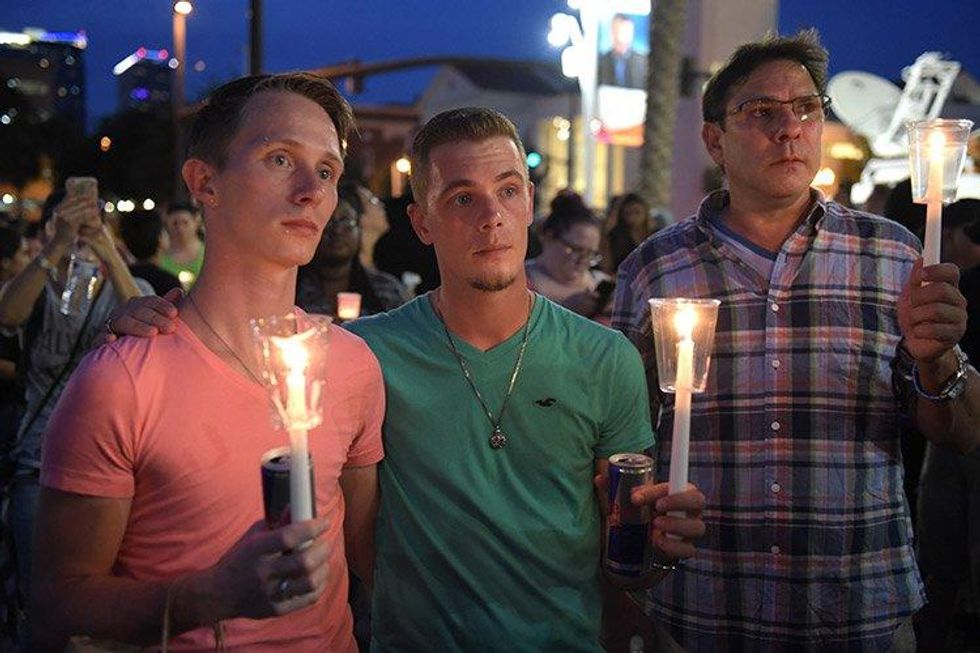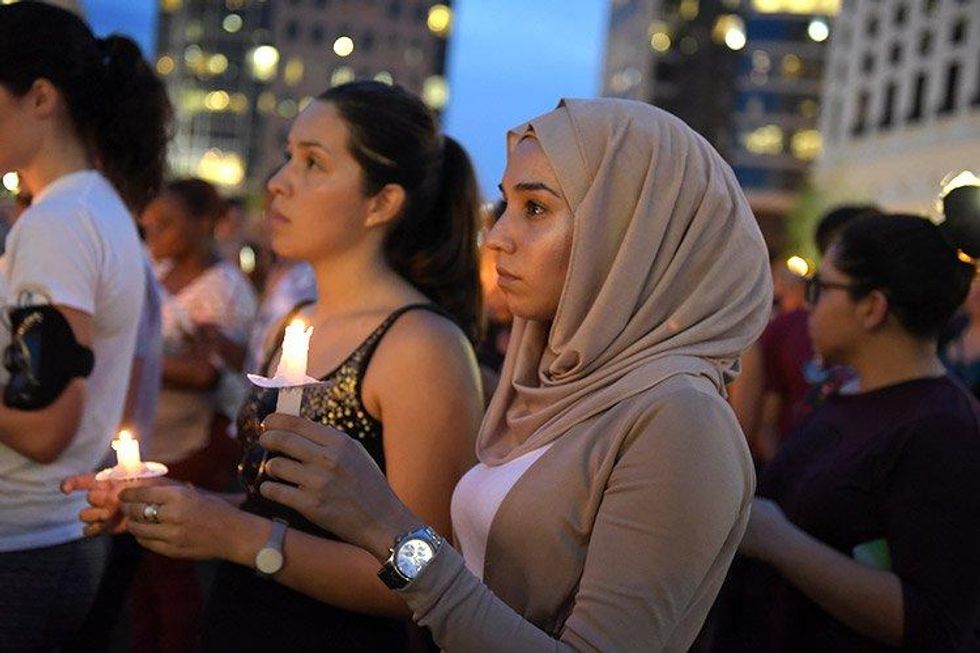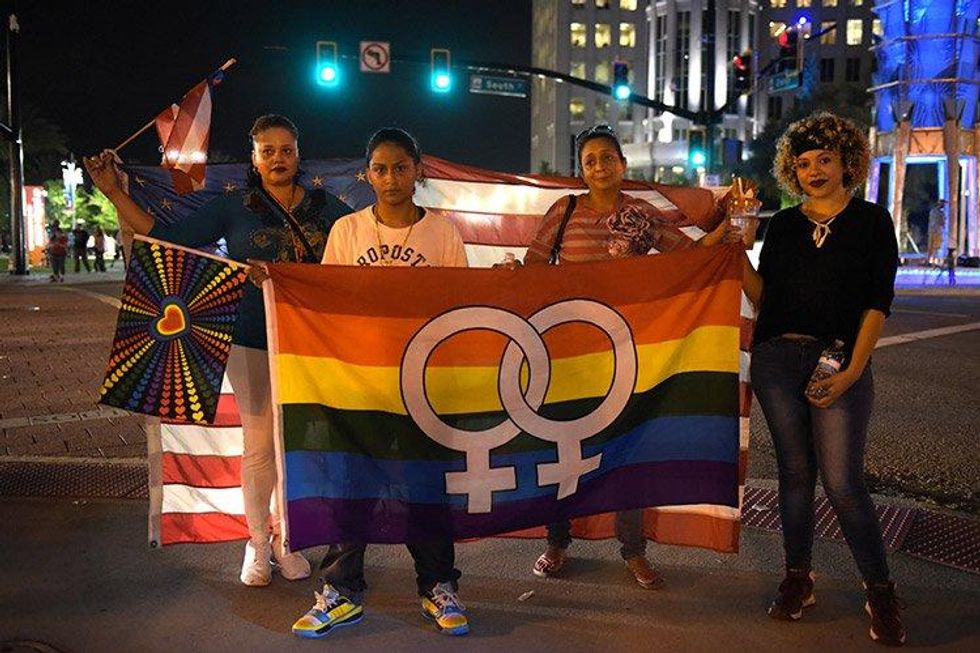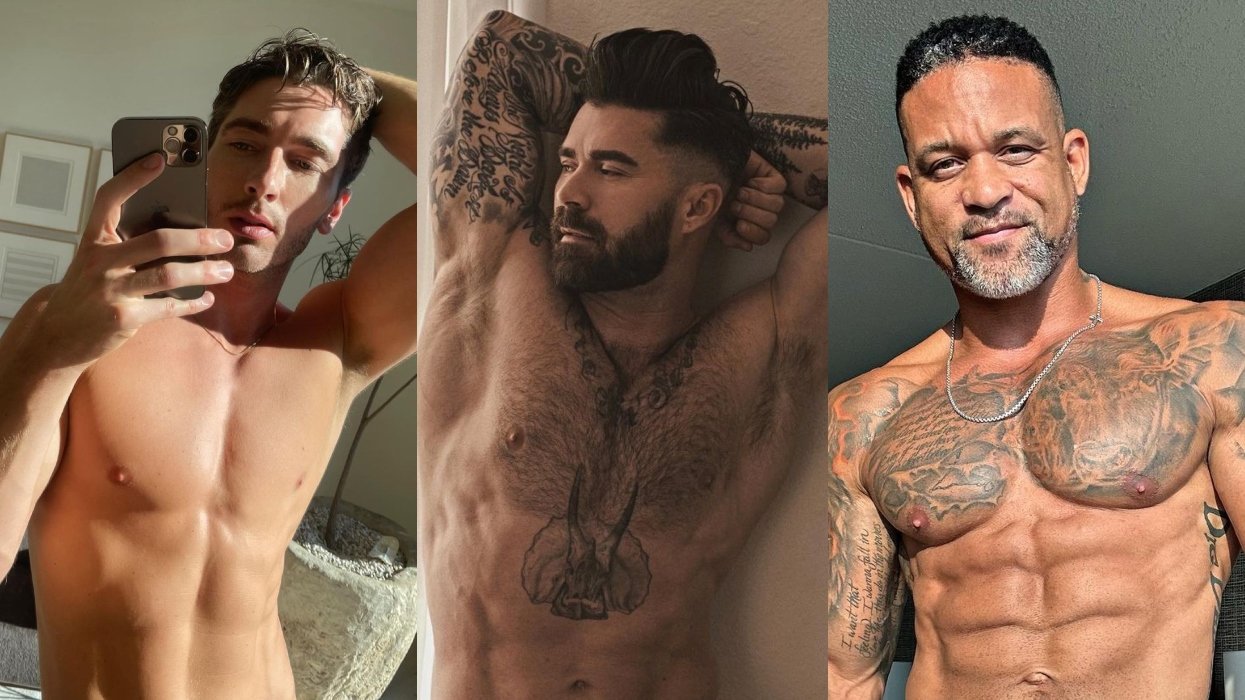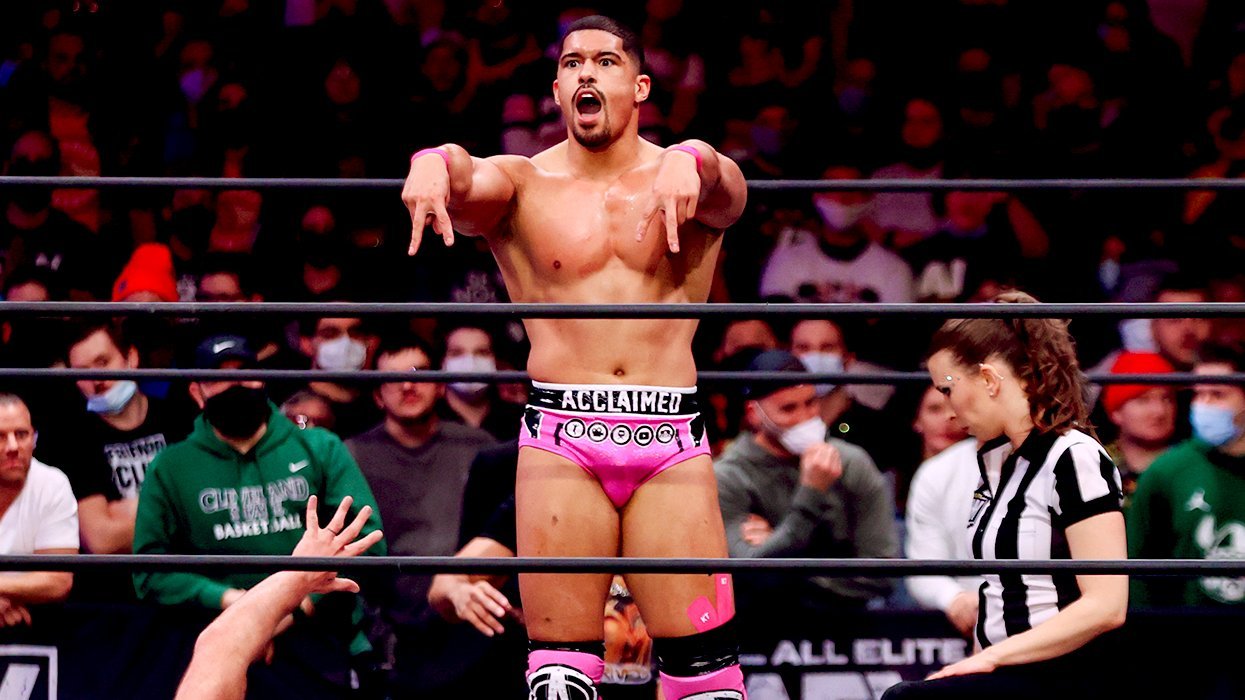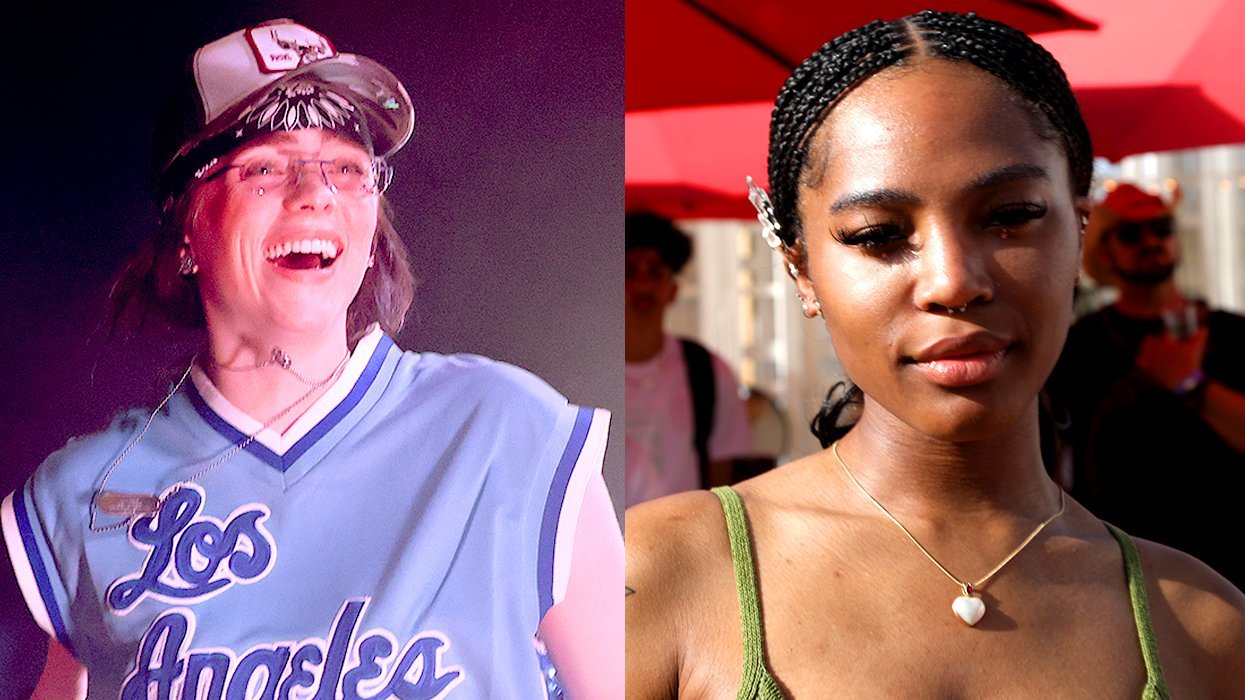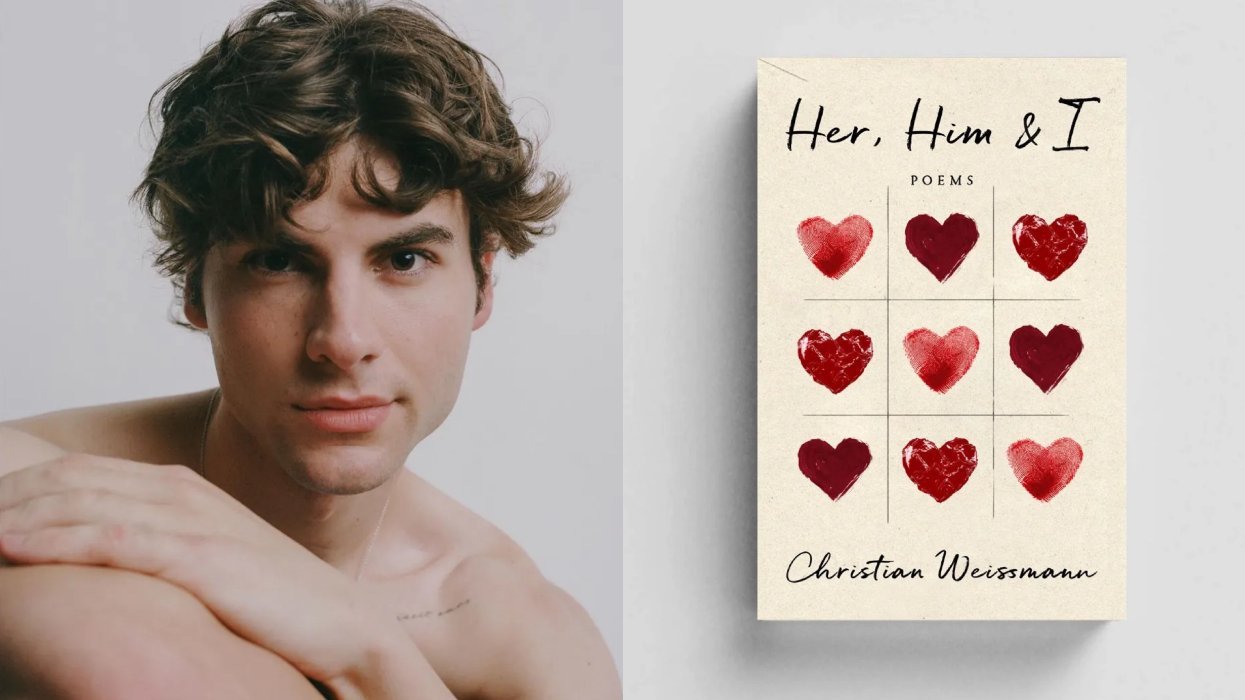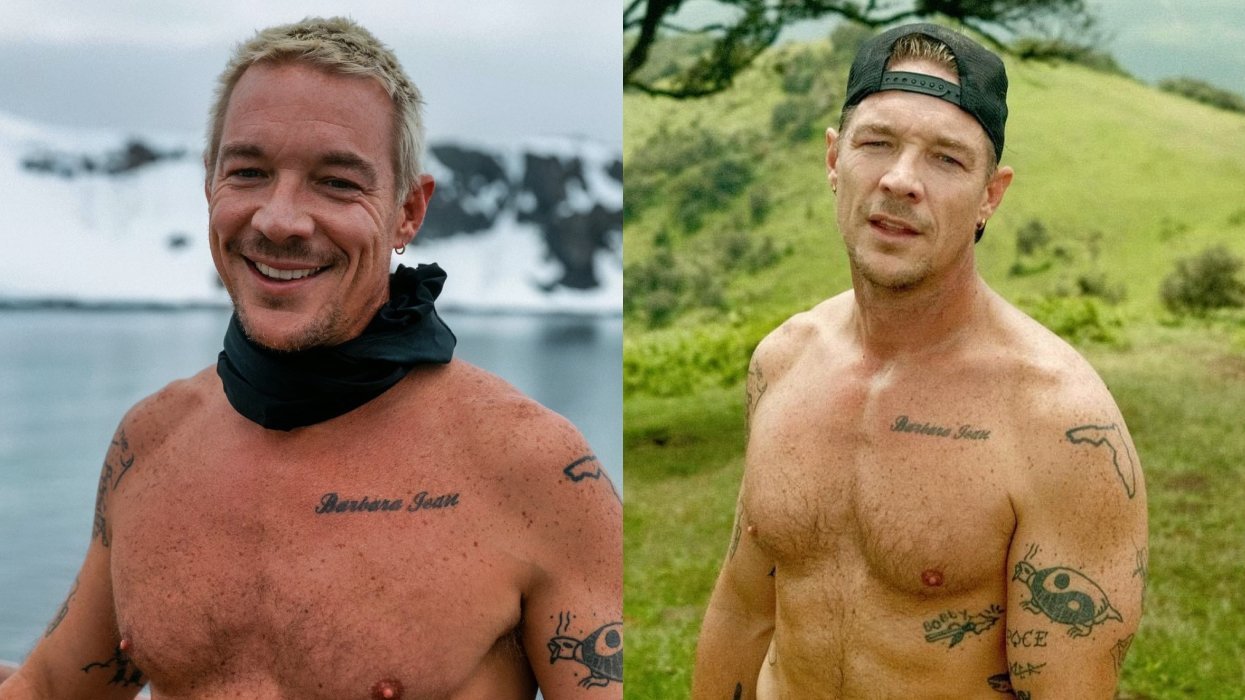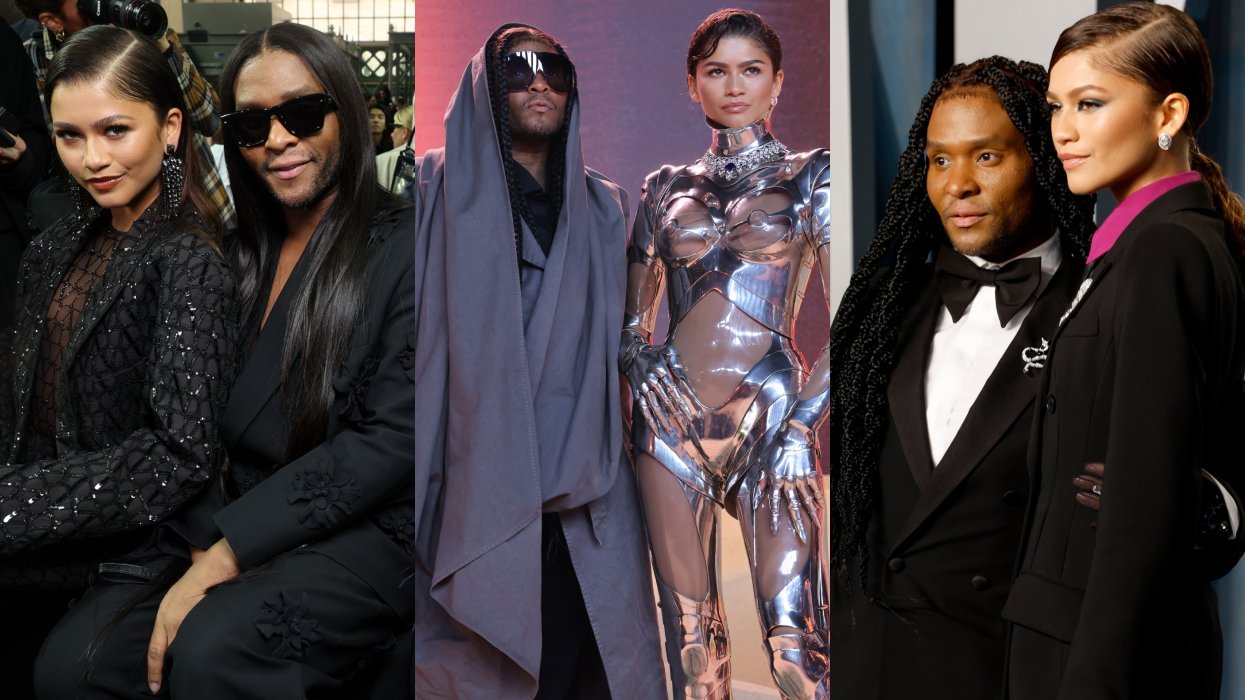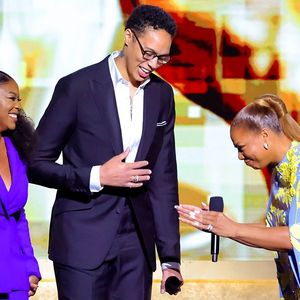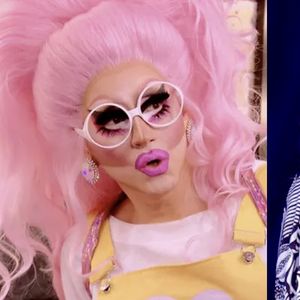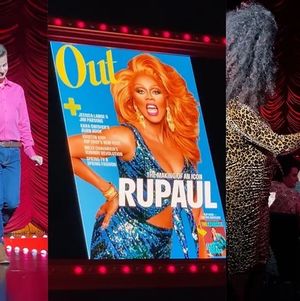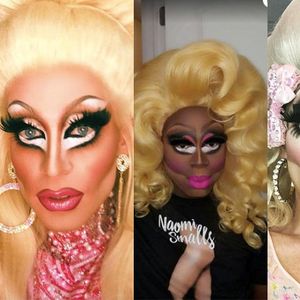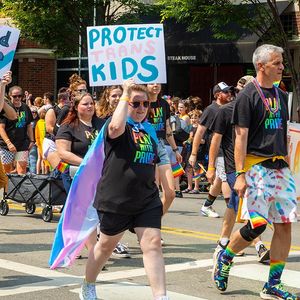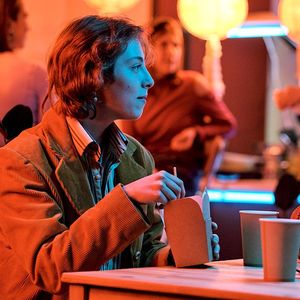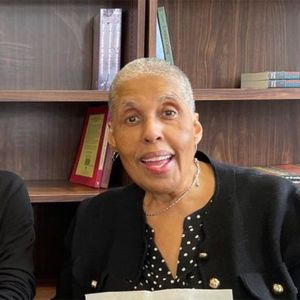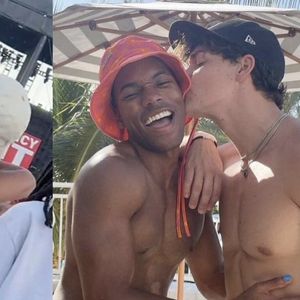ORLANDO--Pascal Mignon met his best friend at Twist, a nightclub in Miami, about five years ago. He asked the man for a light. Neither of them had one, and they tracked down a book of matches from someone nearby. When Mignon struck the match, a chunk of sulfur flecked off and singed the man's shirt.
"He said, 'This is a brand new shirt! You owe me a new one!'" Mignon recalls. The two strangers would spend the next several hours together in some of the most intimate conversation of their lives.
"He was the best guy in the world. I wish he was with me right now," Mignon says through tears. "He came here from Puerto Rico. He just wanted to meet people and have a good life, make some money. He was an artist."
Their relationship both began and ended over cigarettes. At about 1:45 Sunday morning, Mignon stepped out of the Pulse nightclub in Orlando, where the two had come to dance, to buy a pack of cigarettes at a nearby 7 Eleven. He called his friend, whose name Mignon revealed only off the record, to say he stepped out and would be back shortly. His friend asked him to buy a phone charger because his battery was low. Mignon bought the charger.
That's the last time they spoke. As he approached the nightclub, a bloodied and frantic mob burst onto the street. Wounded men and women were running for their lives. Mignon's friend would be among the 49 victims of the worst mass shooting in American history.
"He had a lover, but I fell in love with him," Mignon says. He sits at a picnic table at Parliament House, a local gay resort. "But he was my friend, and I respected him, so I left it at that. But I was in love with him. I was so in love with him."
A man passes by and asks Mignon if he would like a hug. The two embrace.

It's Monday evening. The official vigil hosted by the city of Orlando ended two hours ago--still only nine hours after Mignon learned of his friend's death. He is among the 7,500 mourners that crowded the lawn in front of the Dr. Phillips Performing Arts Center. News helicopters and armed police stationed on rooftops fix their steely gaze on the crowd as the sun sets.
Many arrive with swollen eyes and trembling faces, with loved ones, with friends new and old. They carry candles, bouquets, signs of support and signs of protest, rainbow flags and American flags.
RELATED: Orlando Mourners Share Grief, Strength at Downtown Vigil
Natasha Claudio, 21, stands toward the back with a companion. She lost Peter Gonzales, a friend she had known since elementary school.
"He was fun-loving and had a lot of friends. He was an amazing person," she says. "It's going to be hard. It won't be easy to heal."
David Rodriguez, 22, stands nearby with five friends. He calls them his "lesbian homegirls."
"I'm straight, but it hurts to see our city get attacked, especially the gay community. We are all equal in everybody's eyes. Nobody can judge nobody," he says. "And because it was Latino night--I'm Colombian--it hit even closer to home."
After an hour of speeches and prayers, the bell from a nearby Methodist church begins to toll 49 times, once for each victim. Each toll resonates longer than the last in the hot, thick air. Framed between the sterile edifices of downtown Orlando, sherbet-colored thunderheads loom on the horizon.
Later, people remark that the bell tolls seemed to go on forever. When they thought, surely, this must be the last one, they weren't even halfway there. And when the final bell did ring out, the mourners silently raised their candles in unison, like a single, swift fist into the night.

At midday Tuesday, the Orlando Regional Health Center stands pristine in the sweltering sun that drained last night's thunderheads of their rain. The glassy building curves like an eyelash. Behind the sliding doors, two police officers scan visitors for metal objects and check bags and purses.
An elderly woman, likely a grandmother, reassures her young granddaughter not to be afraid.
"Look, honey, they're just checking us to make sure everyone is safe," she says. "Everything is so, so safe here."
Maybe 50 feet from that atrium where a grandmother comforts a scared child, trauma doctors are speaking to scores of reporters from local and national media.
"This was singularly the worst day of my career," says Dr. Chadwick P. Smith.
Between Sunday and Wednesday, the surgeons performed 44 operations on 53 wounded victims--six critically injured.
"You don't have time to stop and think-you just go," Smith says. "And I think we all have been 'just going' from the beginning."
As the injured rolled in gurneys through ER doors, family and friends began to hear the news in the dead of the night. They called, they texted, and they prayed for some signal of life.
"We're just waiting for that list," says Will Vargis in Orlando. "We're hoping none of our friends are there. Our gay community is so close. Everybody knows everybody."
RELATED: Say Their Names: Photos & Bios of Every Orlando Victim
As the doctors speak, most of the frantic movement has given way to sickly, uneasy calm, punctuated only by television crews setting up and breaking down cameras, sweating through their shirts.
Still, in every corner of the glossy, air-conditioned hospital, the anxious voices of loved ones seems to linger--the fear as real as it was days before, as real as the little girl clutching her small toy purse before the police officers.
Daniel Gmys-Casiano felt that fear when he made a hopeful call searching for his friend, Luis Daniel Wilson-Leon, 37. His friends called him Danny.
"I woke up Sunday morning, and I checked my Facebook first thing," he says. "I see where Danny posted that he was having a great time out and tagged Pulse. I scrolled maybe an inch down, and then I saw the news reports. 'Tragic shooting at Pulse.' I couldn't believe it."
Gmys-Casiano panicked. He woke up his husband. He sent Danny a message; he called. When no answer came, he called a family friend. He called Danny's mom.
They finally learned the truth when the city updated the list of the deceased. Danny had died along with his partner, Jean.

By Wednesday, Orlando gay club Southern Knights is packed with people who have gathered to celebrate their community--even so soon after this tragedy. The club is hosting a benefit for the families of survivors and victims. By 10 p.m., the police begin turning people away. There are too many people inside already.
A crowd amasses on the street. Inside, more than 40 drag queens perform to a packed house. The queens sing to laughter, tears, and laughter through tears. In the next room, a pair of men dance the merengue.
The patrons yell and kiki, as many of them there and mourners elsewhere wonder how they will ever be able to say goodbye.
If he could see his friend, Danny, one last time, Gmys-Casiano would say just how proud he was of him. "He never backed down," he says. "He never let anybody step on him. I would say I regret not talking to him more often. I wished he had been there for my wedding. I wish we had gone together to Ponce, in Puerto Rico, and hang out like we used to. We would talk about everything--life, just everything--and he would get smashed and I would carry him to the car."
Gmys-Casiano's voice cracks up. "I'm really proud of you, Danny, and I miss you."
As the evening ends at Southern Knights, the drag queen Sassy Divine sings John Lennon's "Imagine" while the faces of the 49 victims fade in and out of the television screens.
"This is the most people we've ever had in here," says Jared Cardona, a bartender. "It's just so beautiful."
The journalists buzz with excitement in the small office next to the tarmac. President Barack Obama should arrive in Air Force One close to noon Thursday. He, along with Vice President Joe Biden, will visit the families of the shooting victims.
The huddled reporters share their stories from the past week, elbowing each other to wedge themselves closer to the door.
To one side, four young women, student journalists from the University of Central Florida, receive instruction from a veteran photojournalist on how to hold their cameras properly for when the president arrives.
"It's always good to see more women here," she says, squaring the shoulders of one of the students.
As Secret Service leads the press pool onto the tarmac, a reporter snaps open a paper rainbow fan to cool himself.
Air Force Once touches down. Florida Gov. Rick Scott, Orange County Mayor Teresa Jacobs, and Orlando Mayor Buddy Dyer walk out to meet the president. He emerges from the aircraft. He shakes Scott's hand. He moves in to hug Dyer and Jacobs, exchanging words with each.
His term nearly over, the president has made far too many trips like this. When he lands, the strain and despair show on his face more clearly than the age of two terms spent as commander-in-chief ever could. He takes his motorcade to visit with the victims.
The city's shock has soured to anger. They want someone to blame. LGBTs across the country want someone to blame beyond Mateen: the gun lobby, extremists, Congress, homophobia. They want action.
"I held and hugged grieving family members and parents," Obama says, "and they asked me, 'Why does this keep happening?' And they pleaded that we do more to stop the carnage."
He is stern in the face of the cameras. He has had enough. The survivors of Pulse and the crowds that filled Southern Knights last night have had enough. The world has had enough.
"They didn't care about the politics," he says. "Neither do I."
